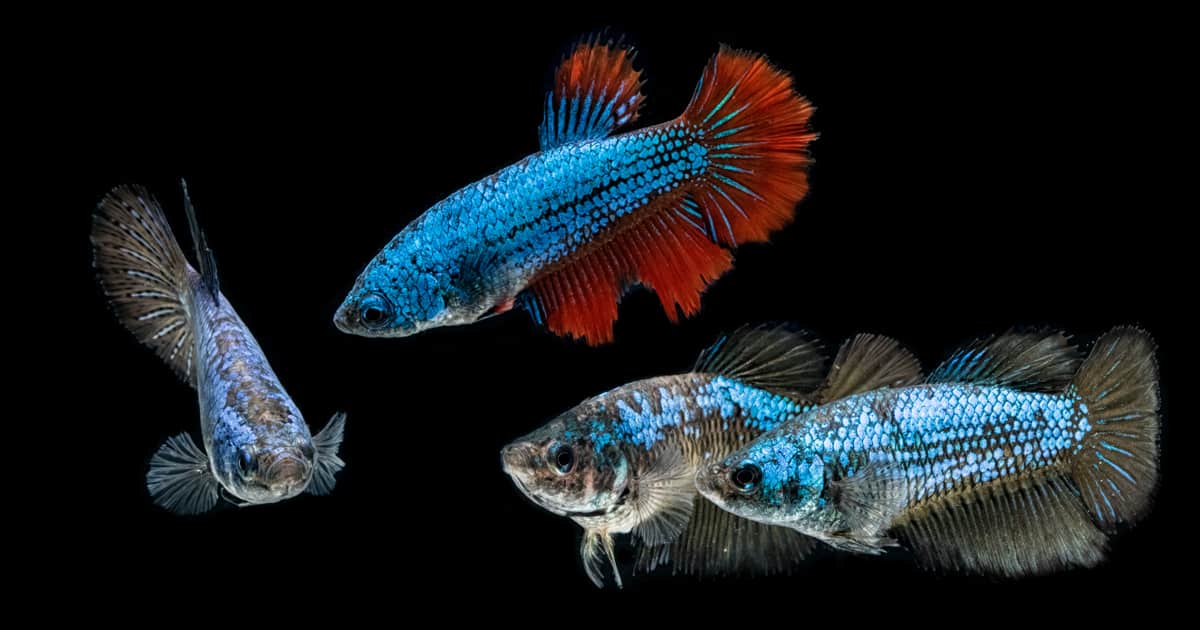Fish
What Are Female Fish Called?

Not only aquarium owners, but the ones that don’t own one are baffled by the question of what female fish are called. It is a given that every aquarium is acquainted with the fishes of both sex. You might have bought fish by simply stating that you want some male fish and some female fish. It is tricky in the case of fishes as some species change their sex at some point in their life. So it is perplexing to answer this question.
A short answer to this question can be that there is no particular name for a female fish. Not just female fish, but males too don’t have a certain designation. So, both sex are known by the word fish. Now let us dive into detail regarding the sex of fish to clear your confusion.
What are female fish called?
As stated above, female fish doesn’t have a specific name. Males and females of fish do not have a proper term or identification. Both are referred to simply as fish. Some species of fish are capable of changing their sex. Some can even do it more than once.
How to tell apart a female and a male fish?
Given that female fish have no definite term to identify them, it doesn’t mean that they cant be distinguished from males. There are many things by which you can tell apart a male and female fish.
First off is the body size. Males tend to be bigger than females. Though the males have larger bodies, they are slimmer than the females. Meaning males are lenger than females. Although to tell the difference, you will have to observe the fishes of the same species. If you are trying with different species, it might not be accurate.
Next is the color of the bodies. In this case, males have more vibrant and distinct colors, whereas females don’t. The vibrancy of colors can be easily noticed in males during mating time. They vibrancy will go upward during this period to attract the attention of the females to mate. Female fish are also able to have vibrant colors when laying eggs.
You can say whether a fish is male or female by their fins. Males have a larger fin, both dorsal and anal, and they appear to stick out. On the other hand, female fishes have smaller and shorter fins.
What are fishes that can change their sex called?
The fishes that can change their sex during their lifetime are known as hermaphrodites. Hermaphroditism can appear in fish in a variety of ways, but the most typical is for a fish to start as one sex and then shift later in life. Sequential hermaphroditism is the term for this. Protandry occurs when a female fish converts to a male, while protogyny occurs when a male fish transfers to a female. The fishes that undergo hermaphroditism are clownfish, angelfish, wrasse, and many more.
Why do fish change gender?
Some fish species benefit from hermaphroditism for reproduction. Fish that do not school, reside in deep or murky waters, or have low population densities may find it difficult to locate partners. Hermaphroditism allows a fish to alter its sex to mate with any other member of its species.
What is a group of fish called?
Two words describe groups of fish. They are shoal and school.
Shoal means a small group of fish. Whereas a school is a large number of fishes that swim together from area to area and stick together to themselves as well.
In conclusion, female fishes don’t have any words to identify them as female and neither males. This gap of identification can be because fishes can change or they do change their sex at some point in their life. Fishes are complicated in terms of sex. Although there are many ways by which you can differ females from males.

 Fish2 years ago
Fish2 years agoIs Apple Cider Vinegar Safe for Fish?

 Fish Tank2 years ago
Fish Tank2 years agoHow Many Fishes Can you Keep in your Fish Tank?

 Cleaning2 years ago
Cleaning2 years agoHow to Clean a Fish Tank Glass? Step By Step Process

 Cleaning2 years ago
Cleaning2 years agoHow Do you Clean Aquarium Gravel?

 Cleaning2 years ago
Cleaning2 years agoHow to disinfect your Aquarium?

 Fish2 years ago
Fish2 years ago20 Best Fish breeds for your Aquarium

 Acrylic Aquarium2 years ago
Acrylic Aquarium2 years agoWhich Aquarium is Better – Glass or Acrylic?

 Fish2 years ago
Fish2 years agoHow Do You Know When Fishes Are Hungry?
